

Enteric-coated aspirin 100 mg/day causes significantly less
gastroduodenal damage vs. plain aspirin.
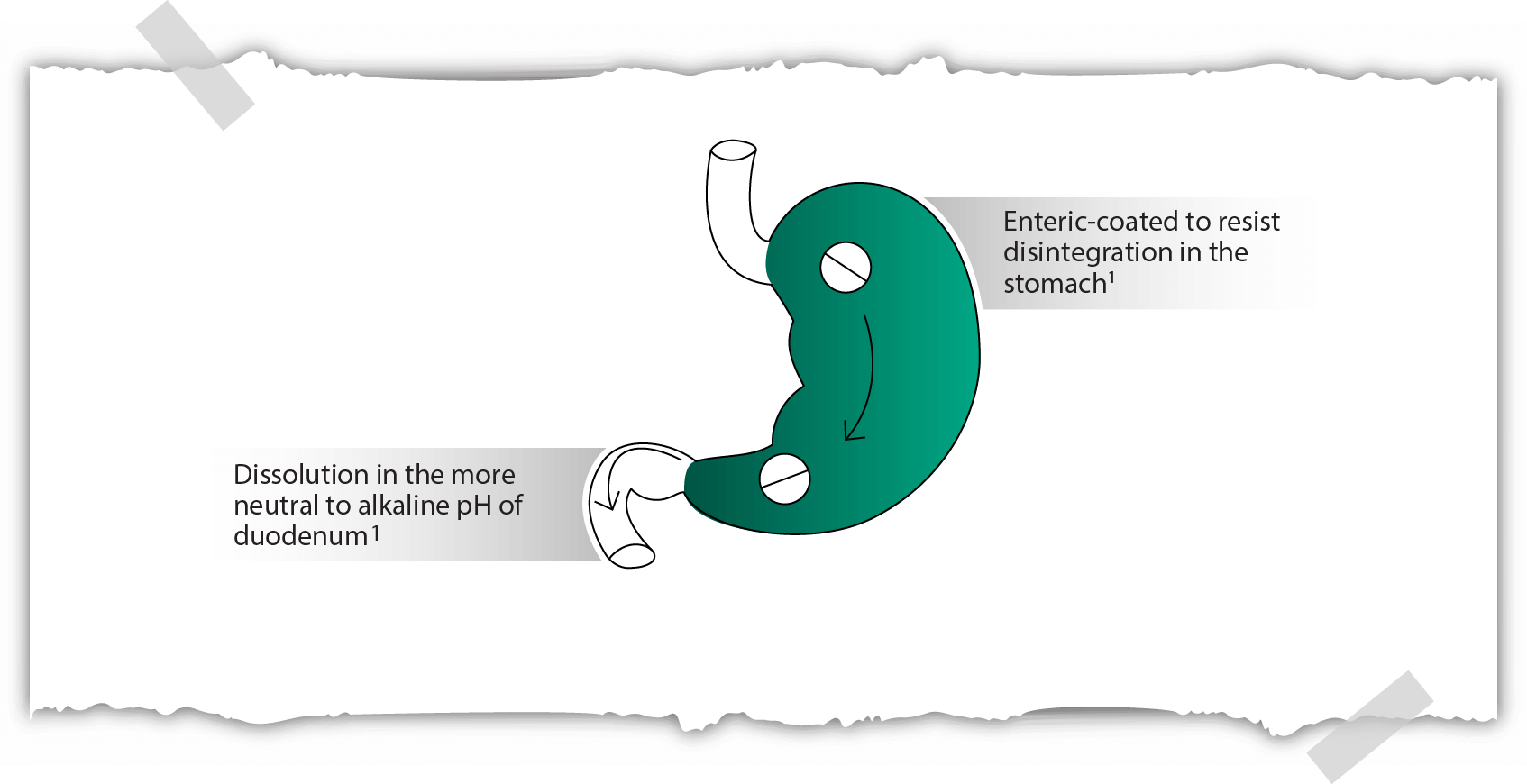
Enteric-coated aspirin 100 mg/day significantly lowers
gastroduodenal damage vs. plain aspirin.1
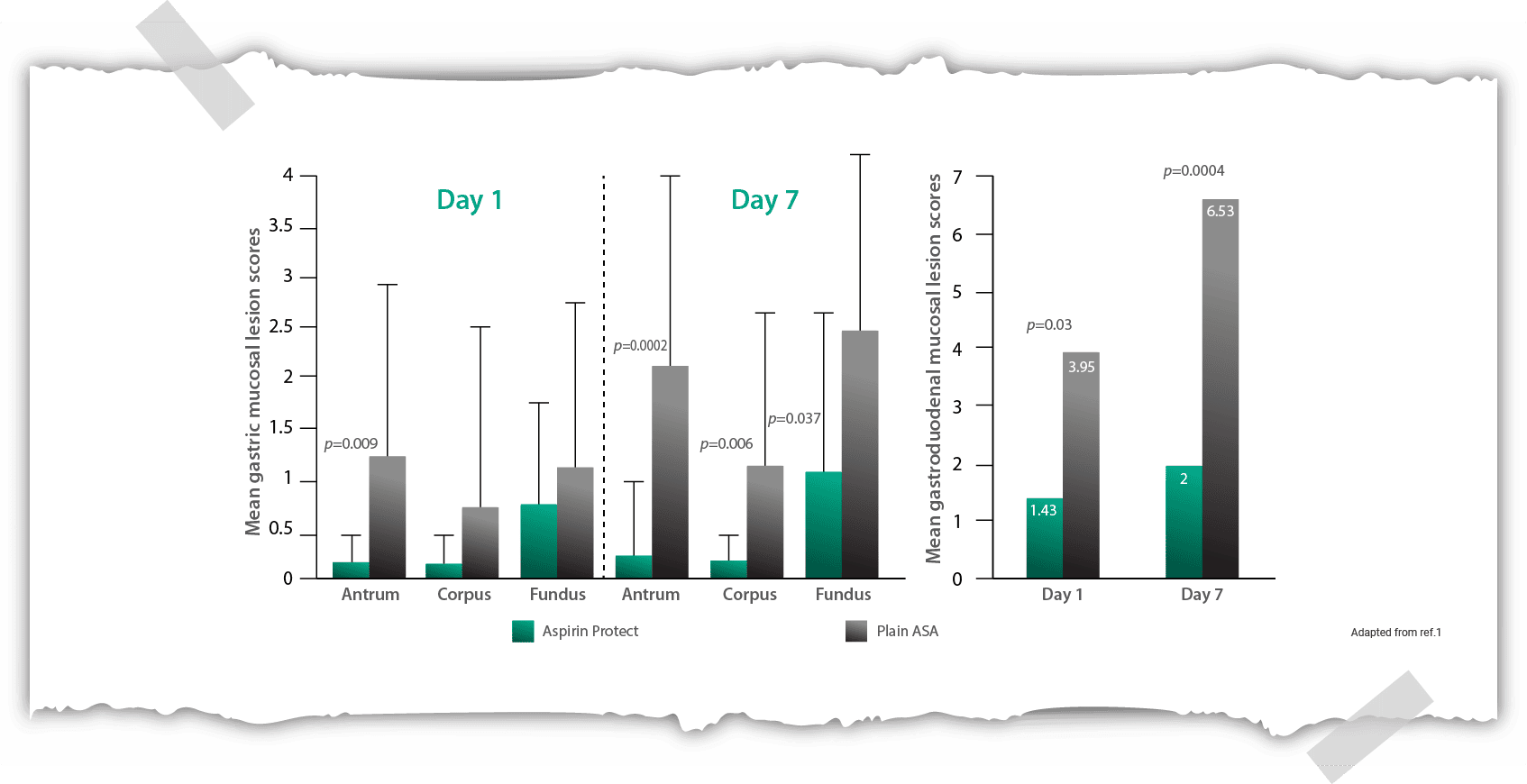
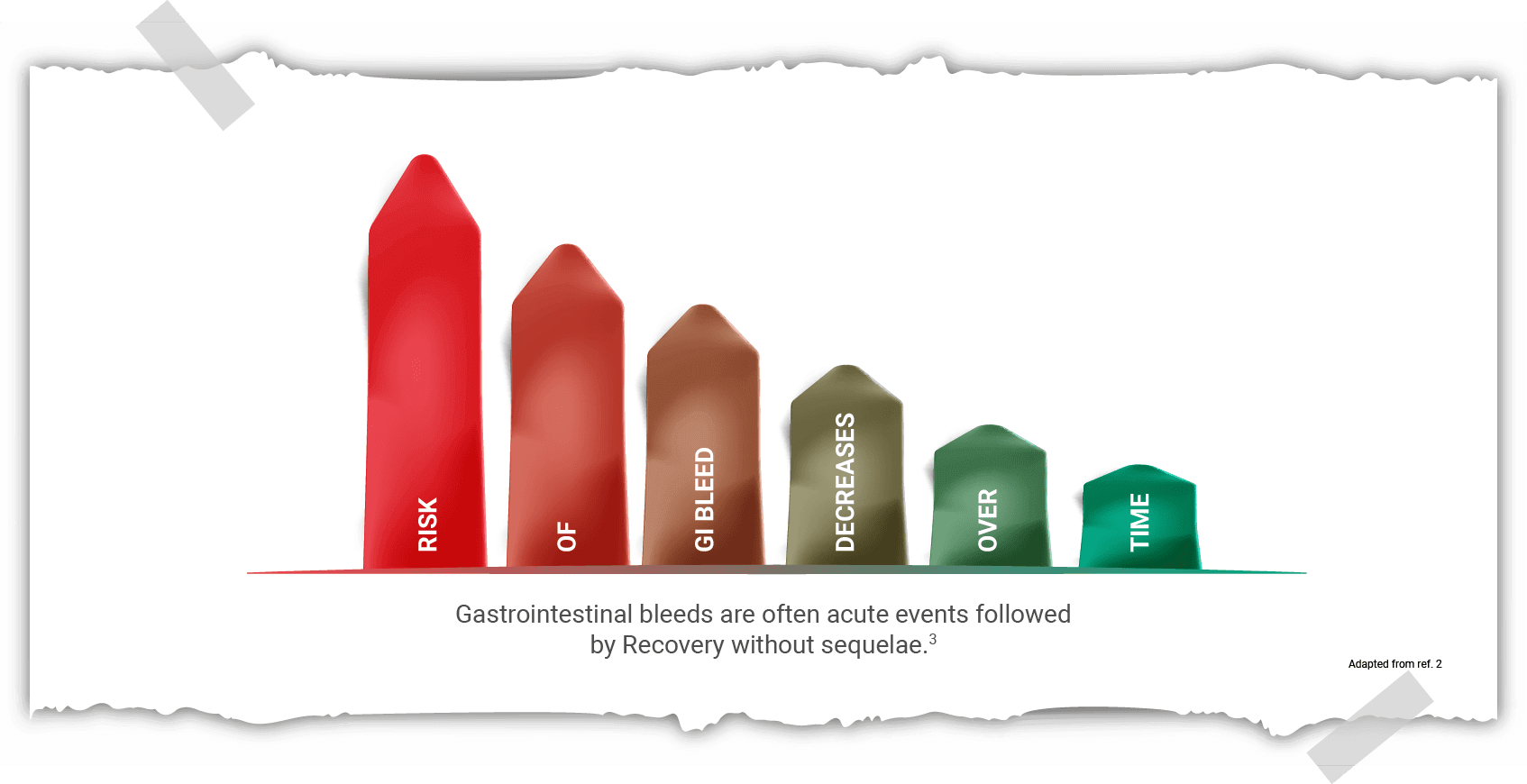
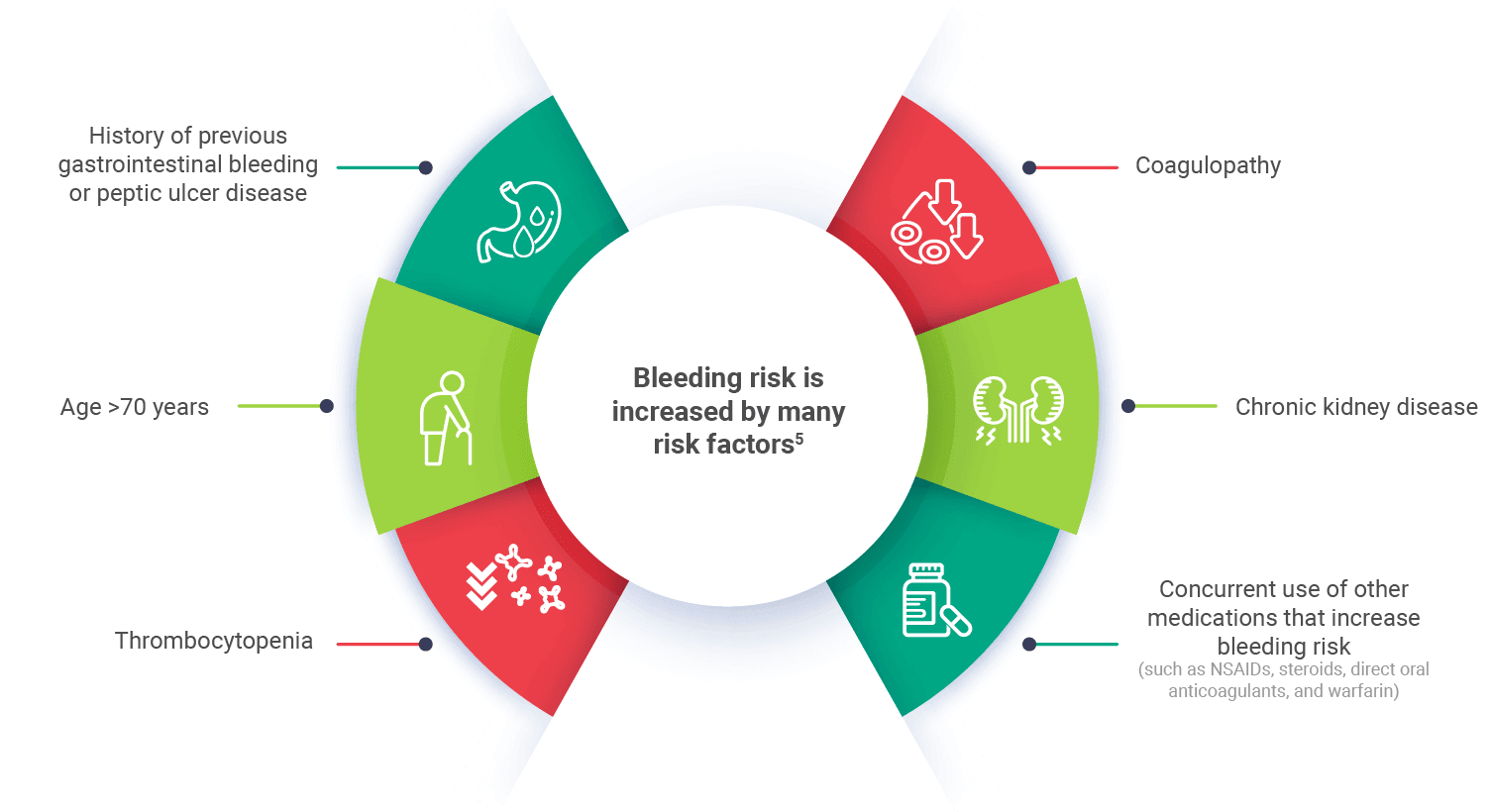
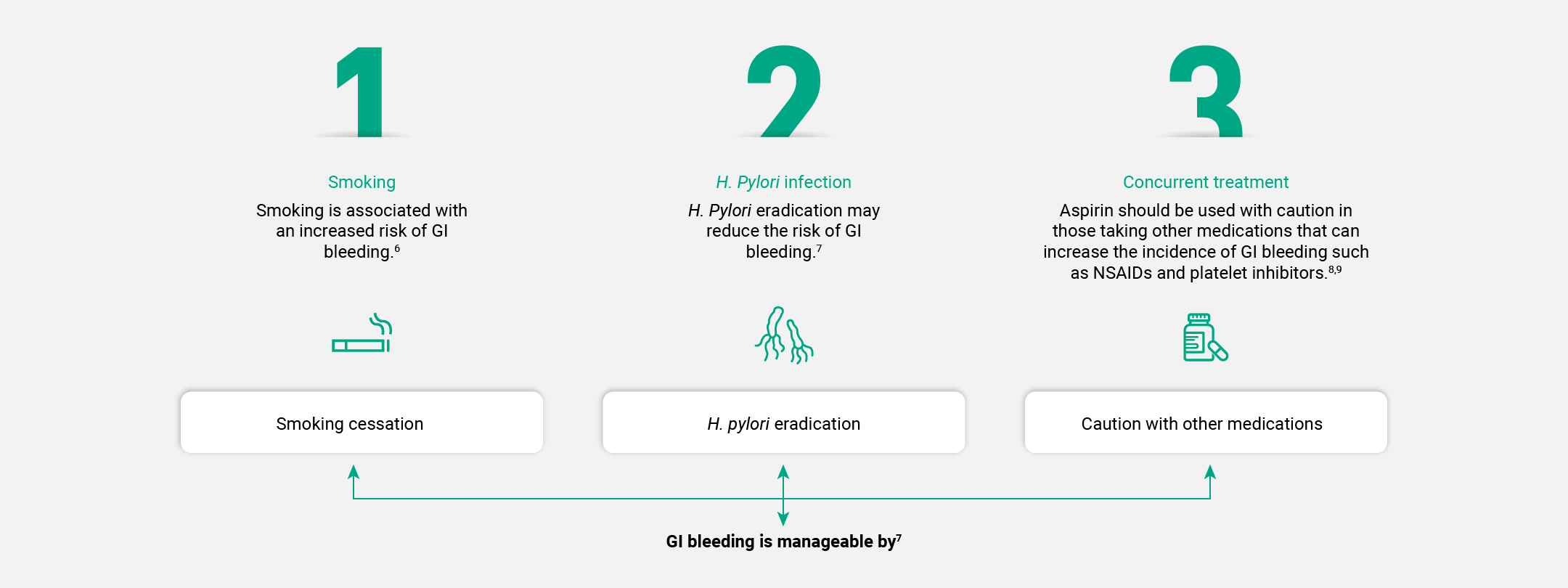
GI: gastrointestinal; CHD: coronary heart disease; CAC: coronary artery calcium; CVD: cardiovascular disease; ASCVD: atherosclerotic cardiovascular disease; NNH: number needed to harm; NSAIDs: nonsteroidal anti-inflammatory drugs; H. pylori: Helicobacter pylori.
References